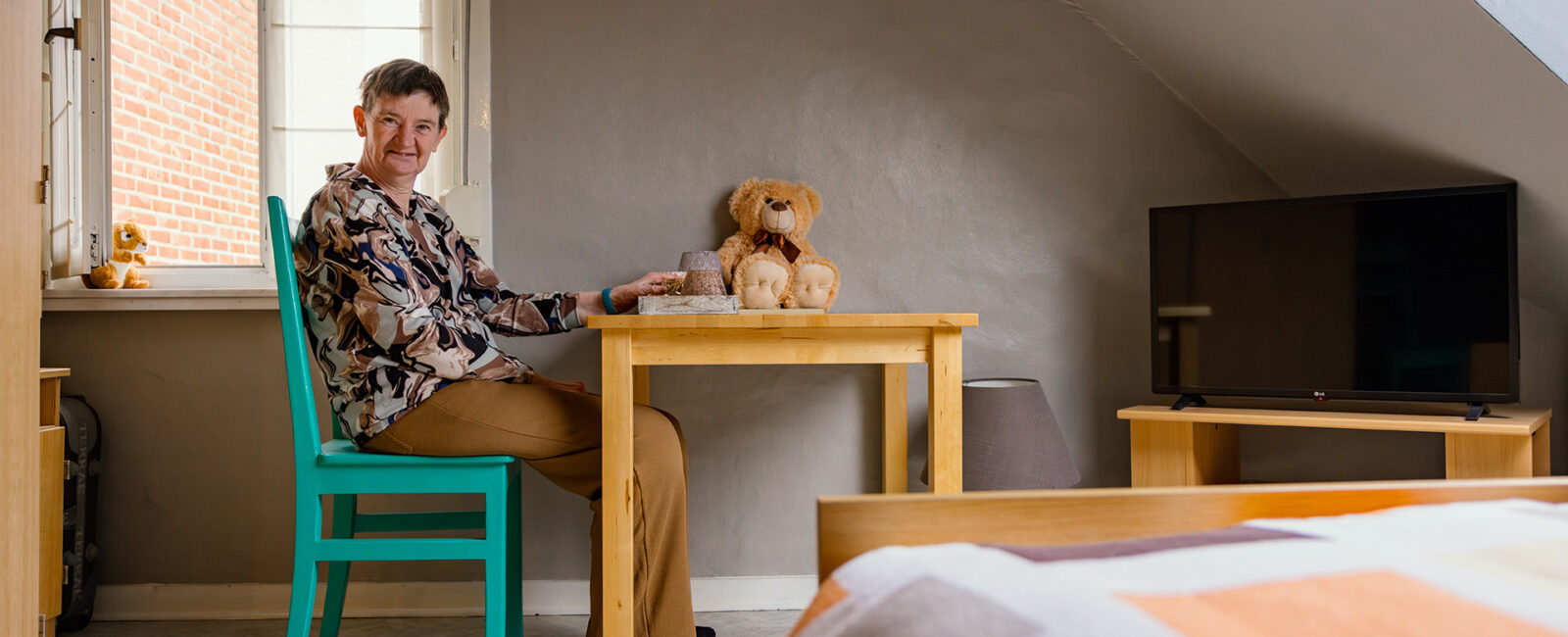Boarders
Before boarders are referred to foster care, they have very often already been in psychiatric hospitals for years. At the time of referral, their mental state is more or less stabilised and it is clear that, at least at that moment, they can only properly function in society with intense and long term treatment and support of a psychiatric team.

They receive such support in the foster care programme, but the boarder needs a minimum of communication and social skills to adapt to life in a foster home. They are expected to take an active role in their own recovery process. Participation and integration into the family and neighbourhood do not come by themselves.
Currently we have 117 boarders in care: of which 64 men, and 53 women. The average age of the boarders is 66. 44 people are under 65 and 73 people are 65 or older.
People that suffer from schizophrenia or other severe psychotic disorders (30% of the foster care population) can be successfully integrated into a family and can benefit from the programme. Another third of the population deal with developmental disorders. In fact, in foster care, the wide range of psychopathology is represented but not all in the same numbers.
People with personality disorders are also in foster care. It is possible for foster families to care for such patients, albeit an often very challenging context. Boarders with an acute drug or alcohol addiction or related problems are excluded.
The behaviour of the boarders should not compromise the integrity of the family and neighbourhood.
For some patients, foster care is not possible because the support they need exceeds the care capacity of a family context.